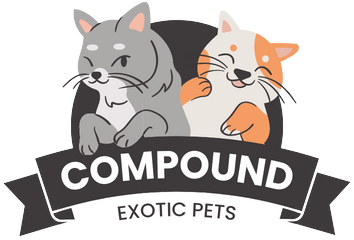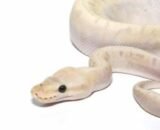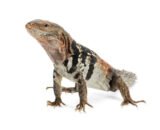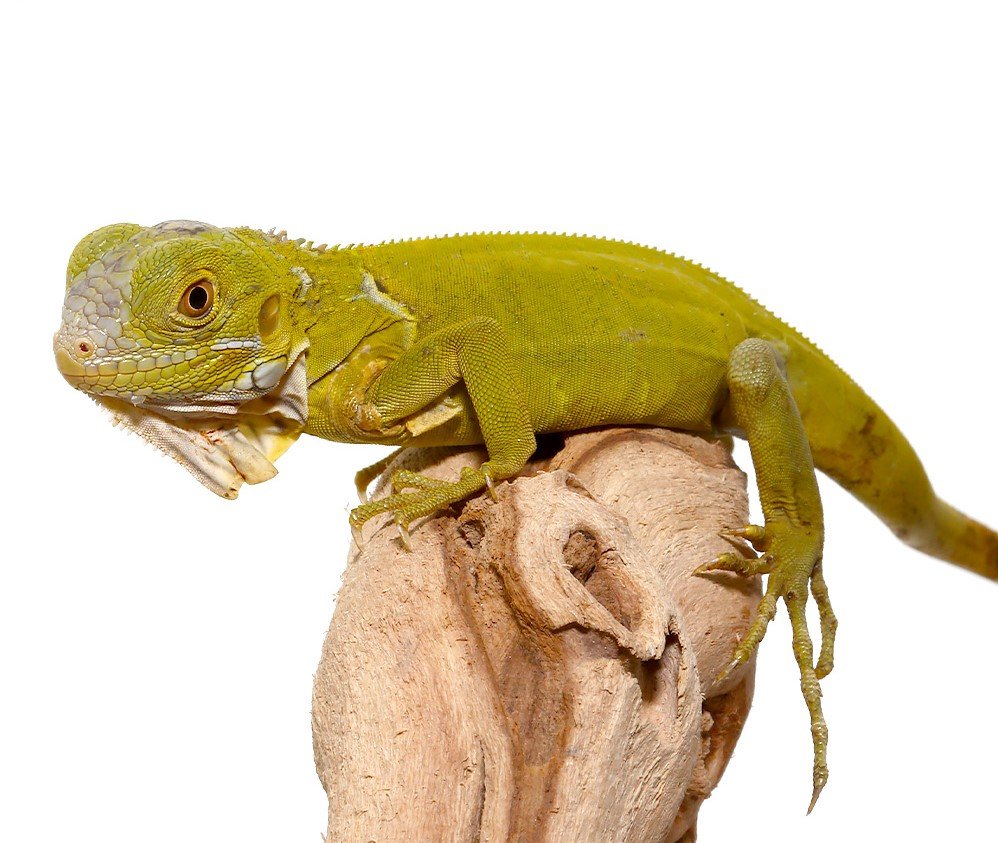The Baby Hypo Iguana is a popular pet reptile that is highly valued for its stunning appearance and unique coloration. As a baby, this iguana has a bright green coloration that will gradually fade as it ages, developing into a creamy white or ivory coloration.
Physical Characteristics:
The Baby Hypo Iguana is a visually striking reptile with a robust body and a long tail. As a hatchling, they measure around 6 inches long, but they can grow up to 6 feet in length as they mature. This species is characterized by a broad head with sharp teeth and powerful jaws for chewing their herbivorous diet.
They have a triangular-shaped head and a dorsal crest that runs from the neck to the base of the tail. The body is covered in large scales with a slightly bumpy texture. Their coloration varies from light green to dark brown, with white or yellow markings on the body and head.
As a hypo morph, this species has reduced melanin pigmentation, which results in lighter coloration than typical iguanas. Overall, the Baby Hypo Iguana is a beautiful and unique reptile that is sure to captivate any reptile enthusiast.
Habitat and Housing:
To keep a Baby Hypo Iguana healthy and happy, it is important to provide them with a spacious enclosure that mimics their natural habitat. The ideal enclosure size for a Baby Hypo Iguana is at least 6 feet in length, 3 feet in width, and 6 feet in height.
Check Out – Zebra Isopods, Albino Isopods
The enclosure should be equipped with basking lights, UVB lights, and a substrate that retains moisture well. It should also have a variety of hiding places, branches, and climbing structures to allow for exercise and exploration.
Feeding and Nutrition:
A Baby Hypo Iguana’s diet should consist mainly of dark, leafy greens and vegetables such as kale, collard greens, and squash. They should also be given a variety of fruits, including berries, mangoes, and melons.
Insects, such as crickets and mealworms, should also be offered occasionally to provide protein. It is important to dust their food with a calcium supplement to ensure they receive the proper nutrients.
Feeding and providing proper nutrition for a baby hypo iguana is crucial for its growth and development. As omnivores, they require a balanced diet of both animal and plant matter.
Offer a variety of leafy greens such as kale, collard greens, mustard greens, and dandelion greens, as well as fruits like strawberries, papayas, and mangos. Insects like crickets and mealworms can also be fed to them as a source of protein.
It’s important to ensure that their food is dusted with calcium and vitamin D3 supplements, which help with bone growth and development. Feeding should be done daily for baby iguanas, and it’s recommended to offer smaller portions multiple times a day to help them digest their food better.
As they grow, the frequency and portion sizes can be adjusted accordingly. Clean, fresh water should also be provided at all times in a shallow dish that is easily accessible for the baby iguana to drink from.
Check Out – Baby Borneo Blood Python, Baby Black Blood Python
Health and Care:
Proper health and care are important for the well-being of a baby hypo iguana. First and foremost, it is important to provide a suitable environment that meets their needs in terms of temperature, humidity, and space.
Regular veterinary check-ups are also recommended to ensure they remain healthy and to address any health issues that may arise. Iguanas require regular cleaning of their habitat and providing fresh food and water daily.
They should also be handled gently and with care to prevent injury or stress. It is important to monitor their behavior and appetite for any changes, as it can indicate an underlying health issue. Overall, providing a safe and healthy environment along with regular veterinary care can help ensure a long and healthy life for a baby hypo iguana.
Training and Enrichment:
Hypo iguanas are intelligent and curious animals, which means that they require mental stimulation and enrichment to prevent boredom and encourage natural behaviors. Providing your baby hypo iguana with a variety of climbing structures, hiding places, and toys will help keep them active and engaged.
Additionally, it is important to handle and interact with your baby hypo iguana regularly to socialize them and help them become comfortable with human interaction. Start with short handling sessions and gradually increase the duration as they become more accustomed to being handled.
You can also provide environmental enrichment by changing up their enclosure regularly with new plants, hiding places, and climbing structures. This will keep their environment fresh and exciting, and also provide opportunities for exercise and exploration.
Overall, providing your baby hypo iguana with plenty of physical and mental stimulation will help keep them healthy and happy.







Customer reviews
Reviews
There are no reviews yet.
Write a customer review